What Is Tofu Coagulant, How It Works, & Which One Is The Best?
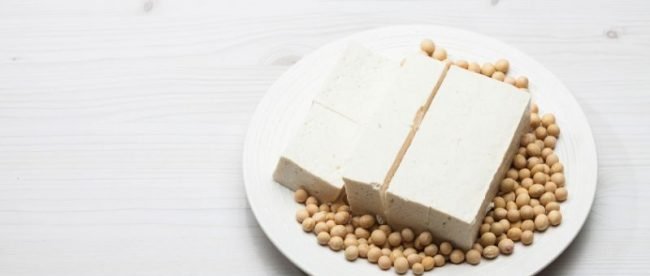
Tofu has been invented in Japan for more than 2,000 years. And then gained massive popularity in China when the soybeans became a common thing in the country. During the 1970s, tofu became a big hit in the United States because meat prices were surging, and it turned out to be a legit protein substitute.
And since the health-consciousness has also been on the rise lately, it made tofu even more in demand. This product is made of 3 core ingredients: water, soybeans milk, and tofu coagulant. The latter is added to create whey and curds, just like in cheese production. In any way, tofu is like a plant-based cheese.
Are you interested in a particular tofu coagulant? Then use the table of contents below to jump to the most relevant section. And you can always go back by clicking on the arrow in the right bottom corner of the page. Also, please note that some of the links in this article may be affiliate links. For more details, check the Disclosure section at the bottom of the page.
So, in a nutshell, a coagulant is used to solidify the liquid base for the tofu.
Various kinds of tofu coagulants may produce different results for you (both taste and nutritional value wise).
So let’s try to figure out which one is the best to use to create the tofu you like the most.
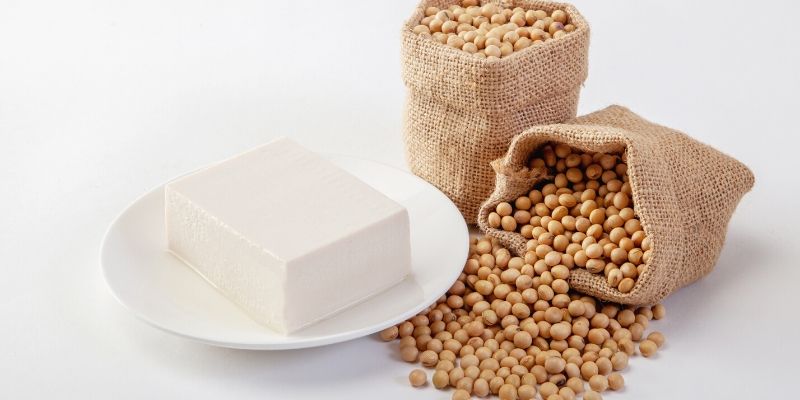

Effect of coagulant in tofu
As I ‘ve mentioned, there are not many ingredients used in tofu production. It’s basically always soybeans and water. And only when it comes to coagulating agents, things might get tricky.
Each coagulant has different effects on tofu’s taste and texture (soft, firm, silken, etc.), curding time, and even the nutritional composition of the final product.
Japanese (who had started the whole tofu thing) would traditionally use nigari, mineral-dense seawater precipitate. But amongst the most popular ones, there are also Gypsum, Epsom salt, and various acid and enzymatic coagulants (e.g., lemon juice), just to name a few.
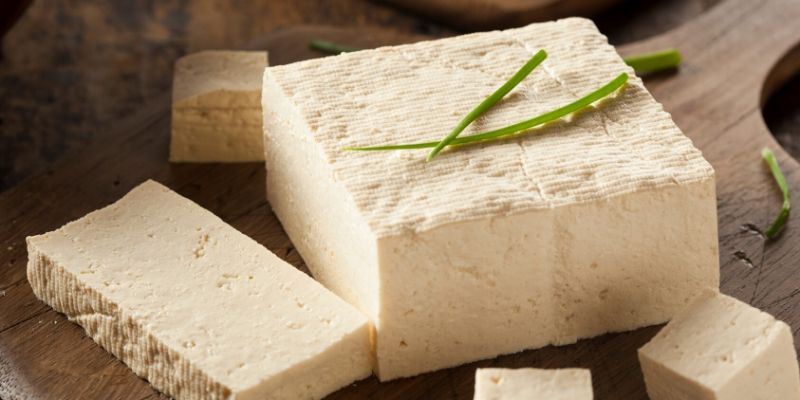
There were several studies on the subject in an attempt to identify which method is the best for those who are very health conscious. And here are some outcomes:
Calcium and magnesium contents are significantly higher in calcium sulfate (Gypsum) coagulated tofu. (Which is a good thing, nutrients!). The lowest was in tofu made with Epsom salt (magnesium sulfate). Gypsum tofu also turned out to be the lightest of all, while lemon juice gave harder results
Obatolu, V.A. Effect of different coagulants on yield and quality of tofu from soymilk.

Epsom salt as tofu coagulant
also referred to as magnesium sulfate, is made up of sulfur, magnesium, and oxygen. It’s quite a popular tofu coagulant, especially amongst those who prefer to cook tofu at home since it’s widely available at drugstores and supermarkets and costs very little.
This ingredient is responsible for the slightly grainy texture of a prepared product. But, as I’ve mentioned earlier, researchers found that tofu coagulated with Epsom salt has fewer nutrients.
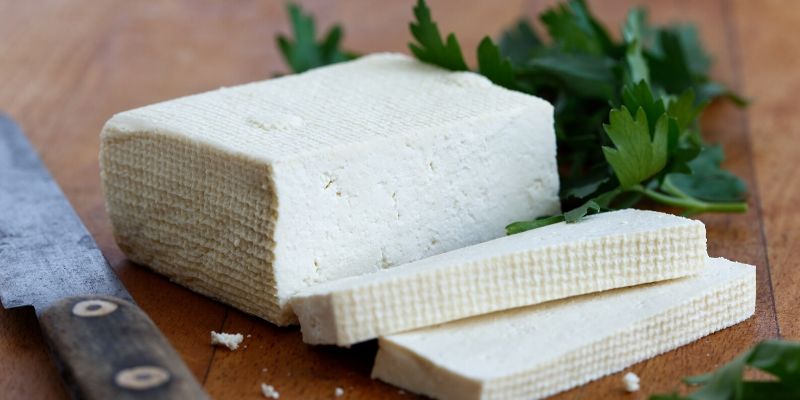

Gypsum tofu coagulant
tofu (or calcium sulfate tofu coagulant) is the most common in traditional Chinese recipes. It will start to thicken the soymilk immediately. It will produce tofu, which tastes more on the sweeter side and tends to be smooth, tender, and bouncy.

Nigari as a tofu coagulant
(translates as “bitter”) is a traditional Japanese tofu coagulant. It’s liquid produced by removing salt from seawater, and it is rich in magnesium and calcium, so that’s why it is sometimes called Magnesium chloride too. It creates a slightly sweet flavor (probably the sweetest of all). And it makes the firmer tofu than gypsum. But still smooth and tender.

Lemon juice as a coagulant for tofu
Acid and enzymatic coagulation are other well-known methods in tofu making. In that case, you might use papain, gluconolactone (organic acid used in cheese making), vinegar (acetic acid), lactic acids, or various citric juices, including lemon juice.
The latter is a natural, inexpensive, locally available coagulant. However, compared with nigari or gypsum, the tofu yield is low. The texture is crumbly and the flavor a bit tart.
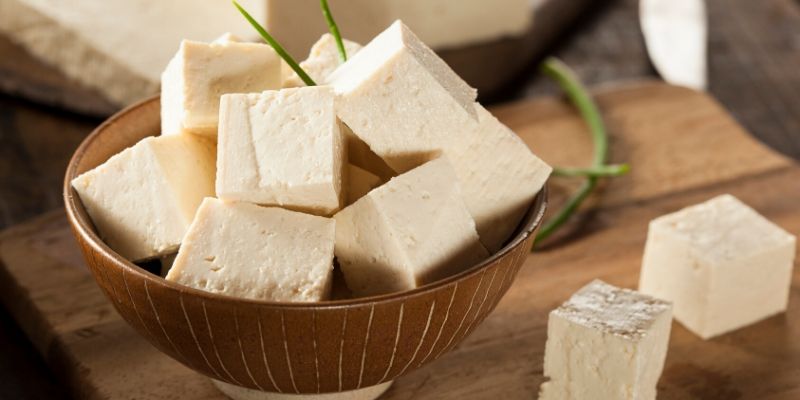

Best coagulant for tofu of all
Calcium sulfate () and Magnesium chloride () are amongst the most common and the best (practically equally good) coagulants. Epsom salt probably comes next. And various acids, such as lemon juice or vinegar, are the last on the list since the yield is lower, and taste/texture ration might be inconsistent.
Thanks for the graphics: Canva.com
Disclosure: At vegketodiet.com I only mention the products that I researched and considered worthy. But it’s important to note that we are a participant of several affiliate programs, including but not limited to VigLink and Amazon Services LLC Associates Program. As an Amazon Associate, this website earns from qualifying purchases. Also please note that I am not a doctor. As such readers are strongly recommended to make decisions that might affect their health by doing their own research. At vegketodiet.com I only document and describe thoughts, researches and ideas that proved to be working for me.

